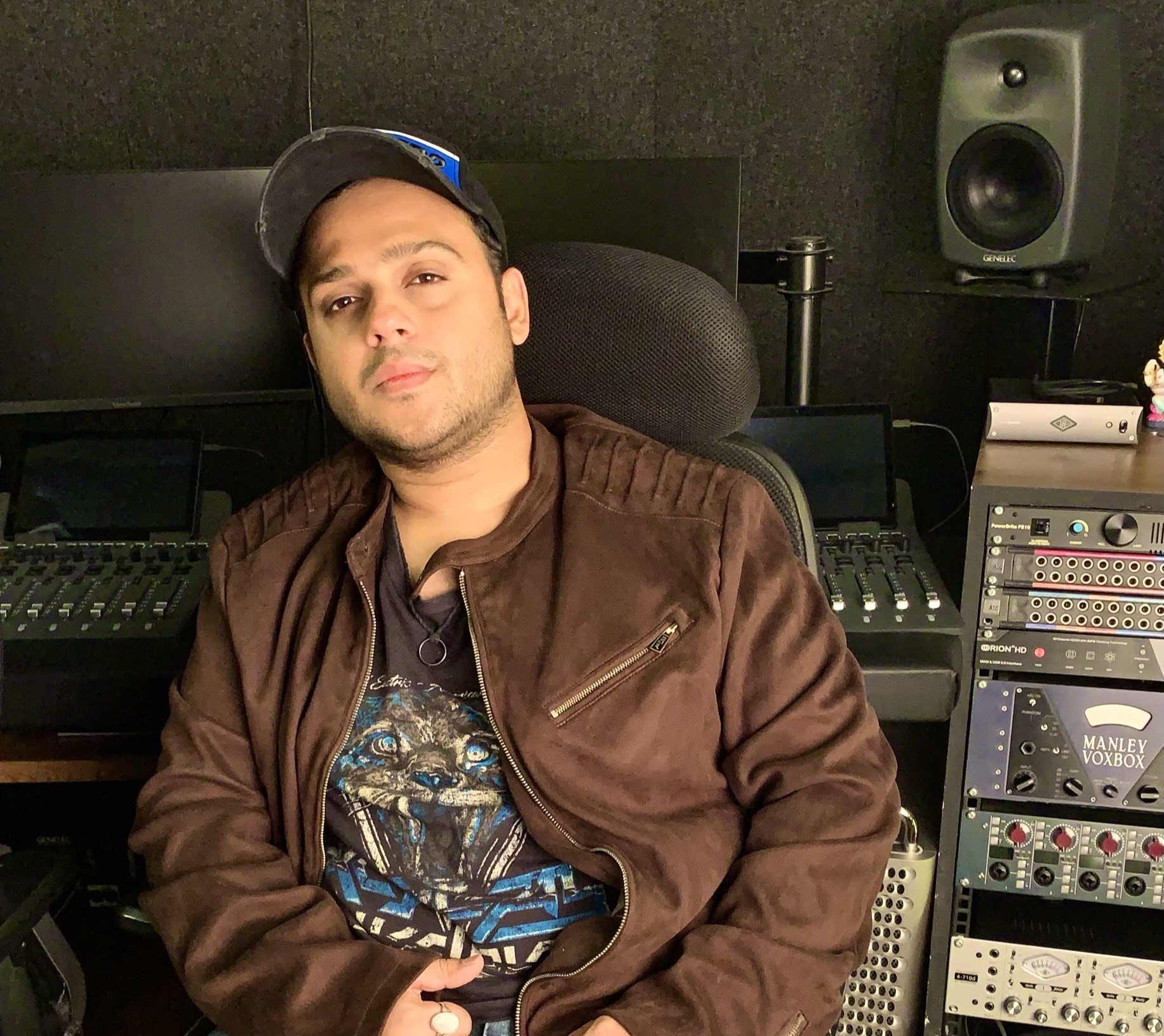The lyricist-composer explains his approach to music, remakes, and more

Photo: Courtesy of Mohsin Shaikh
Bollywood music of late has been reaping the fruits of the labor of erstwhile superhits—remaking old songs that were already popular. Is this the reason for its waning appeal? Since a majority of movie producers rely on remakes these days to improve their odds of scoring hits, I presume that the Bollywood music industry is gradually losing its luster. As opposed to a few years ago, when one composer’s hit piece became a template to follow for the rest, movies and music makers now primarily borrow heavily from classic Hindi film songs and contemporary Punjabi tunes to recreate them.
Technically speaking, a Hindi cinema album these days is a mish-mash of multidisciplinary efforts. Or might I say, an arrangement of different composers mixing pre-recorded sounds? Is this a new approach used by musicians to figure out a formula? These tend to be polarizing questions, as evidenced by what up-and-coming lyricist and composer Mohsin Shaikh had to share when asked about his creative approach to music, remakes, and more. Read the edited excerpts below for his insight.
What defines your music and your creative approach when you’re composing and writing a song?
My music is characterized by its minimalism while preserving the melody. In terms of my creative approach, I strive to keep a composition more commercial by taking into account the listeners’ tastes and preferences. A simple tune, in my opinion, always stands out.
Bollywood song remakes have become mainstream of late. Your thoughts on this, given you’ve co-written the re-created adaptation of Mika Singh’s “Sawan Mein Lag Gayi Aag”?
Everyone has a distinct viewpoint on remakes — some people like them, some don’t. I believe that a good song should be a blend of both good lyrics and good music. Remakes of popular songs are often criticized, but if they are done well — that is, if they do proper justice to the original songs — people do appreciate them and enjoy dancing to them. Consider tracks like “Aankh Maare,” “Sauda Khara Khara,” “Saawan Mein Lag Gayi Aag,” “Nikamma Title Track” and a few others as examples.
You have also co-written the song “Akdi Pakdi” for the movie Liger. How did this multilingual initiative come about?
We worked on this tune during lockdown last year. So, Azeem Dayani (Liger‘s music supervisor and co-writer of “Akdi Pakdi” with me), composer Lijo George and DJ Chetas were on a conference call. That’s when Lijo-Chetas received a heads-up about this song, and we all started jamming over the con call. After that, Azeem invited us to the Dharma office, where we all jammed on Lijo-Chetas’ arrangement. The song was written by me and Azeem Dayani, and it was approved by the makers. It was a lot of fun working on the track. It’s our first multilingual song.
Together with Javed, you’ve been co-composing a slew of Hindi film songs. In what ways has Bollywood’s sound changed over time?
The need for melody in a song has never changed, even though the sound has evolved with time. Previously, music composers would record a lot of live instruments in their songs, but nowadays musicians employ a lot of sampled and pre-recorded sounds and instruments from various software and sample packs in libraries. The sound will develop more in the future, but because Bollywood music reflects Indian culture, the essence of Indian melody will remain.
Is Bollywood music losing its charm?
No, I don’t think so. Bollywood music will continue to expand. And it will never lose its charm as long as musicians can create a variety of commercial music categories that are in line with what the wider populace wants to hear.
Composing an original song versus keeping up with current musical trends: what’s more challenging?
Both, from my perspective, are challenging since they need the same level of dedication and effort. Any song, original or remake, can do wonders if handled with genuine passion and hard work. As already mentioned, the melody must be maintained. A superhit song combines good words, good sound, and music.
What music genres are you keen to explore in the future?
I’m interested in a variety of music genres that I’d like to explore, including jazz, rock, Latin music and more.
Words of wisdom for newcomers aspiring to enter the music industry?
As rightly said by Roy Ayers, “The true beauty of music is that it connects people; it carries a message; and we, the musicians, are the messengers.” So, create music with passion, love, honesty, and simplicity, and you will see people loving and enjoying your tunes.
The Academy heaped praise on expected contenders like One Battle After Another and Sinners, but…
The star lets the light in on his shimmering title track from his long-awaited album…
High costs, hard choices, and a growing class divide: The affordability crisis is here for…
The singer's sophomore LP arrives March 27
Ryan Coogler’s vampire thriller earned 16 nods, beating the three previous films tied for 14
“It is gratifying to have been part of something that endures, even for 50 years,”…